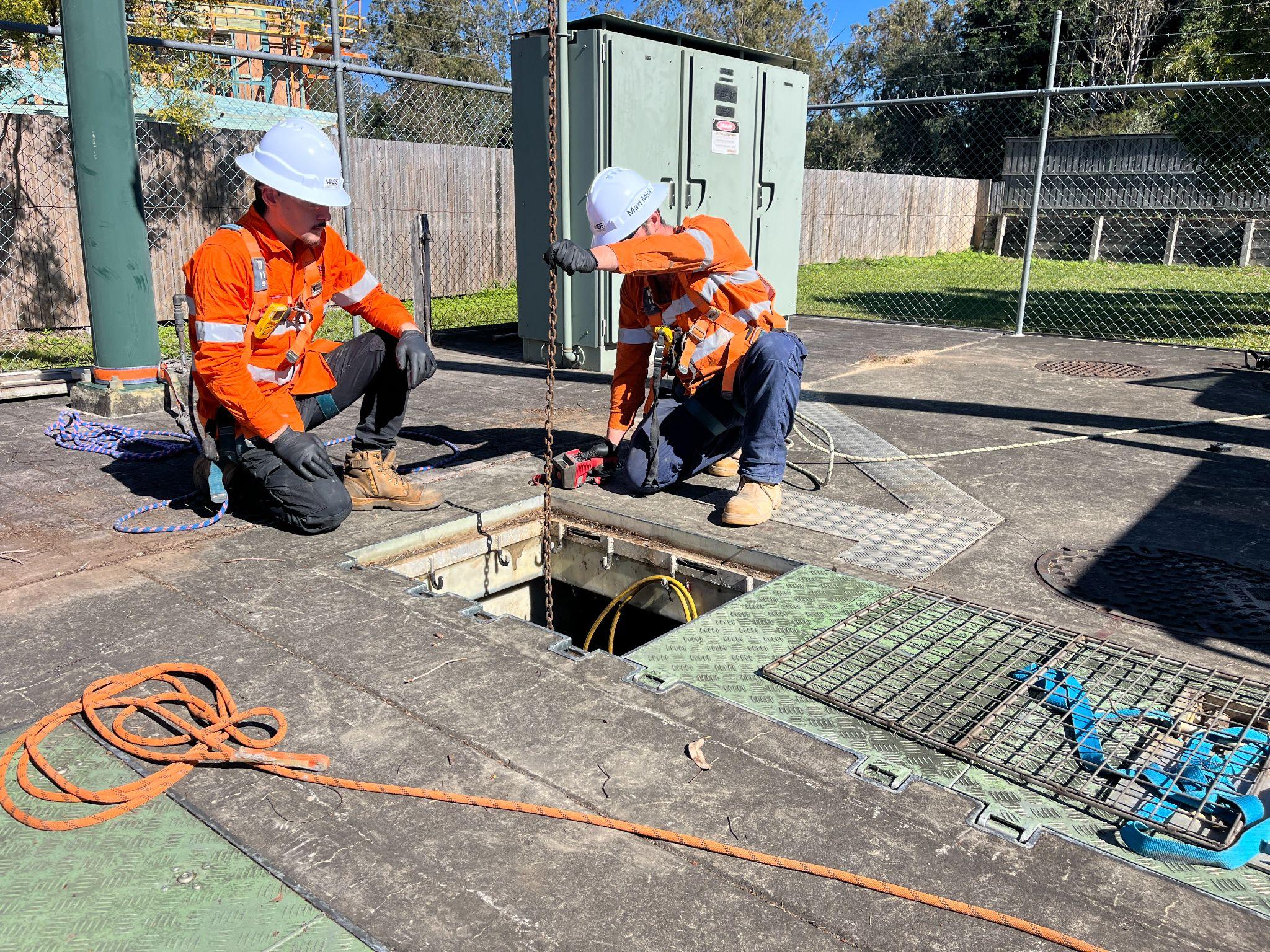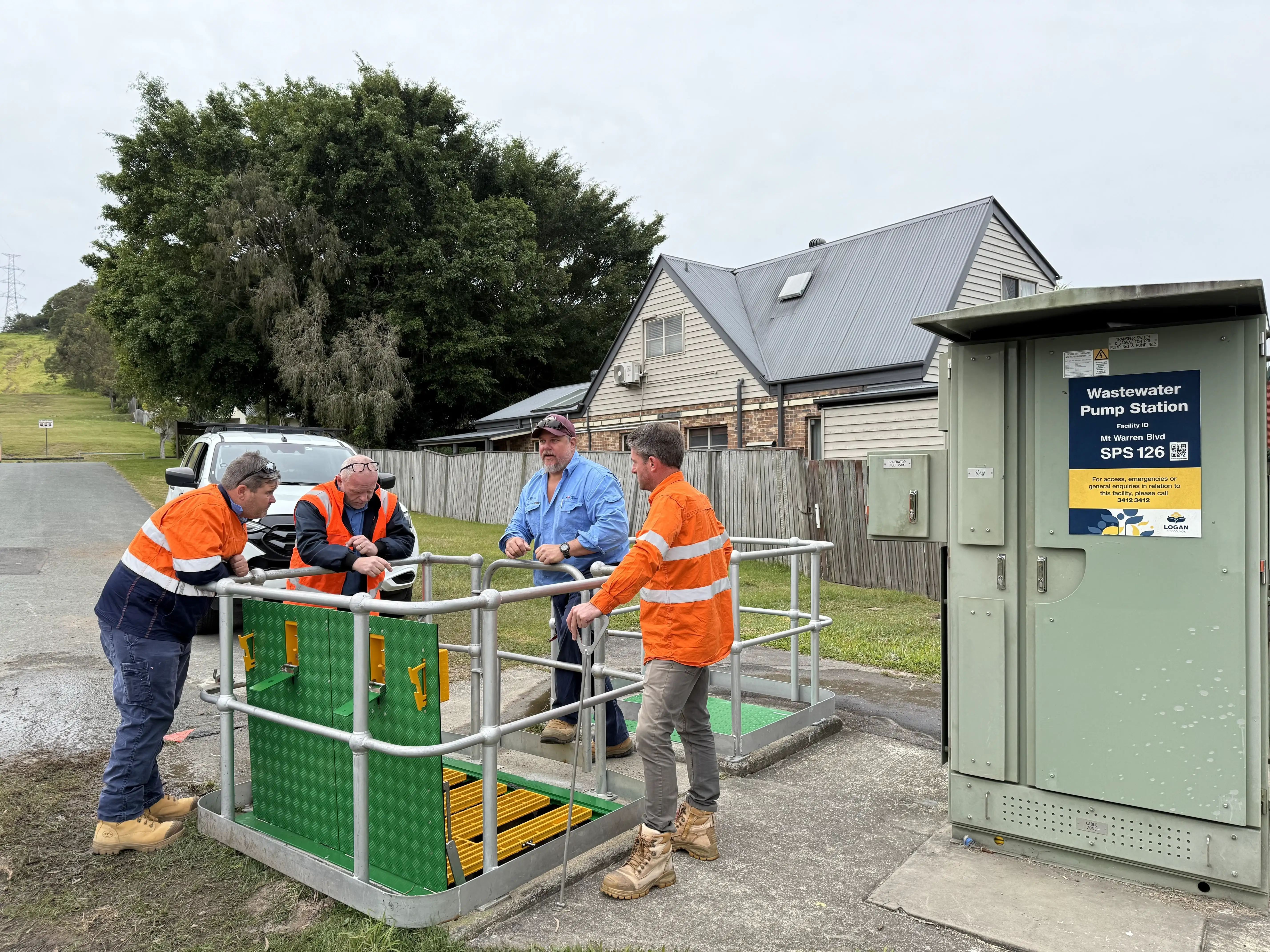Call to abolish unsafe access to utilities
Mass is driving radical change in safe infrastructure access, reducing risks, cutting costs, and protecting workers across Australia’s water industry.


CALL TO ABOLISH UNSAFE ACCESS TO UTILITIES
Six years on from a comprehensive analysis of Australia’s ageing infrastructure, a Queensland-based infrastructure access specialist is calling for radical change in the way workers interact with enclosed assets to save lives.
Mass CEO, Paul Harazim, said Infrastructure Australia’s Australian Infrastructure Audit 2019 had been a call to action for many infrastructure operators such as water and sewerage utilities.
“Much of Australia’s water and sewerage pipes, pump stations, valve pits, reservoirs and treatment plants were built before the 1970s, and the assets were only designed to last about 50 years,” Paul said.
“The Infrastructure Audit and industry focus on how to deal with ageing assets has prompted many utilities to program extensive asset renewal and maintenance programs.”
“While improvements are great, around 80% of water and sewerage assets are underground and challenging – if not downright dangerous – to get into and work on. Lids to lift can weigh up to 60kg, pump wells can be up to 18m deep so that harnesses have to be worn, and confined spaces in sewers are full of toxic gases so respirators have to be worn.”
“If you are servicing a pump station twice a year, which is what many utilities do, this is a couple of days of completing safety paperwork and then following detailed on-site safety procedures like installing lifting gear and getting workers into harnesses. That’s an expensive process if you have a portfolio of hundreds of pump stations and lots of crew members to train.”

Paul said that safety risks and administrative controls could be eliminated by standardising the way workers access infrastructure.
“Removing the physical risk means that administrative controls like procedures and permits are no longer required,” he said. “It turns hundreds of sites into one because you only need one set of controls.”
Paul said that he was concerned that accessing assets was contributing to deaths and serious injury and illness claims across the country.
“Unsafe access to pits, pipes, pump station wells and reservoirs is closely related to falls from heights, manual handling injuries and slips and trips incidents,” Paul said.
Key Work Health and Safety Statistics Australia published by Safe Work Australia in 2024 showed that falling from a height was the second highest contributor to all worker deaths in 2023 (15% or 29 deaths).
Of the more than 138,000 serious work-related injury and illness claims in 2023, body stressing (body strains), and falls, trips and slips were the top two contributors to claims (32.7% and 21.8% respectively).
“Mass is so focused on improving safety in the water and sewerage industry that we started the first annual water industry safety forum across the country in 2022. We have also updated the South East Queensland design code with standard drawings for aluminium access covers and the City of Logan’s and City of Gold Coast’s sewage pump station standard drawings,” Paul said.
“This builds on the pioneering safety access work that Sunshine Coast company McBerns has done as well as feedback from our customers and colleagues.”
“We realised we need to implement a standard method of access to protect all workers.”
For Mass, standardisation has meant auditing access arrangements at customers’ assets, designing access improvements, prioritising improvements, and manufacturing and installing standard, safe covers, grates, rails and lids.

“We supported one major Queensland utility to upgrade about 600 assets over three years. This meant replacing time-consuming and unproductive administrative controls for each site with a standard work method and installing safer lids, grates, rails and hatches,” Paul said.
“Now, this utility can use two people, and not a whole team, to lift a couple of pumps from a deep pump station well, clean and check them, replace them and drive away before the neighbouring utility can even fill out their safety checklist.”
Paul said utilities were seeing that safer access to assets was encouraging maintenance while containing costs.
“It’s making maintenance less of a chore. We estimate that standard access to underground assets results in a 50% time saving and a 90% cost saving associated with routine maintenance.”
“For an urban utility, that’s millions of dollars saved each year in operating costs”.
Mass planned to expand its safe access consulting services in 2025/26 around Australia.
“Some have called us water industry disruptors and that’s fine with us. Major change is overdue to protect workers and enhance productivity in the infrastructure sector.”
Background
- Mass is an Australian business which provides safe access to infrastructure.
- Since 2013, Mass has provided products and consulting services to help people work safely above and below ground, and to keep community members safe as they move around our cities.
- Mass’ multi-disciplinary team of innovators, project managers, engineers and fabricators work around Australia to support major utilities and government agencies to plan and implement safe access programs.
- Mass’ head office and manufacturing facility is on the Gold Coast, Queensland.

Visit our office

Gold Coast, QLD Australia
Mass is based in the Gold Coast, QLD. We offer our services Australia-wide and products internationally.

Phone - domestic
1300 191 960
















.svg)






